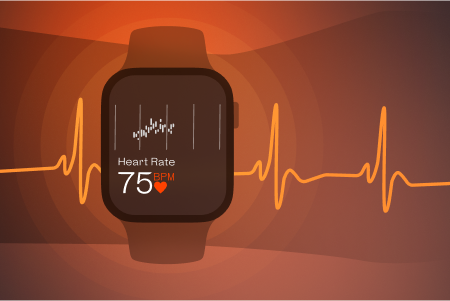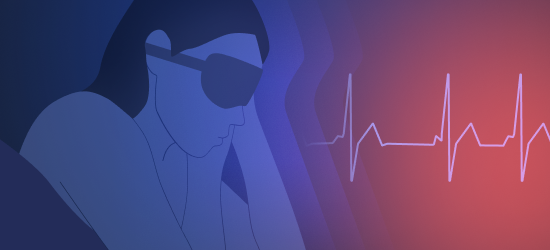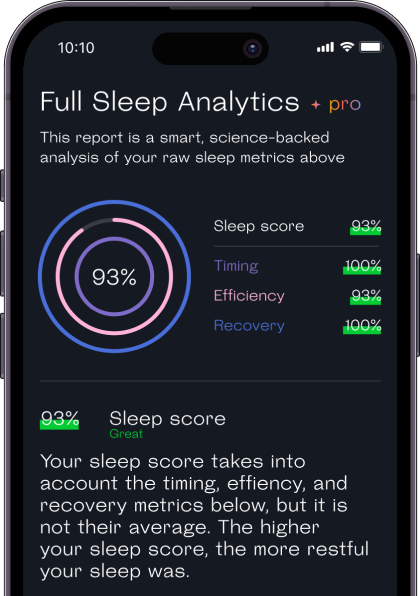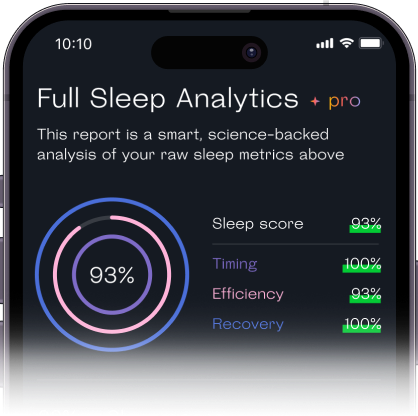


Welltory is the Ultimate HRV App




Home » Heart Rate Variability » Heart Rate Variability and Sleep

Do you ever feel like you’re getting enough sleep but still waking up tired? The quality of your sleep might be the culprit. One of the key indicators of sleep quality is heart rate variability (HRV), a fascinating measure that can provide insights into your overall well-being. In this article, we’ll explore the relationship between HRV and sleep, and how Welltory app can help you track and improve your sleep quality.
Heart rate variability is the measure of the variation in time between successive heartbeats. It might sound counterintuitive, but a higher HRV indicates better cardiovascular health and a more adaptable nervous system. This is because a higher HRV reflects the balanced interaction between the sympathetic (fight-or-flight) and parasympathetic (rest-and-digest) branches of the autonomic nervous system
The autonomic nervous system (ANS) plays a crucial role in the regulation of various bodily functions, including heart rate, digestion, and stress response. It consists of two main branches: the sympathetic nervous system (SNS), responsible for the fight-or-flight response, and the parasympathetic nervous system (PNS), responsible for the rest-and-digest response. The balance between these two branches is essential for maintaining overall health and well-being.
Heart rate variability (HRV) is a key indicator of ANS function, as it reflects the balance between the SNS and PNS. A higher HRV signifies a more adaptive and resilient ANS, as it indicates that both the SNS and PNS are working in harmony to regulate the body’s functions. On the other hand, a lower HRV suggests that the body may be experiencing stress, leading to an imbalance in the ANS.
The connection between HRV, sleep, and the ANS can be better understood by examining the different stages of sleep and their association with ANS function:
NREM sleep consists of three stages, ranging from light sleep (stage N1) to deep sleep (stage N3). During NREM sleep, the body transitions from a state of wakefulness to a state of rest, with the PNS becoming more dominant as sleep deepens. Studies show that HRV typically increases during NREM sleep, particularly during the deep sleep stages, as the PNS promotes rest and recovery.
REM sleep is the stage of sleep associated with vivid dreaming and heightened brain activity. During REM sleep, the ANS becomes more active, with both the SNS and PNS showing increased activity. As a result, HRV during REM sleep tends to be more variable, with periods of high HRV (PNS dominance) and low HRV (SNS dominance) occurring throughout the REM stage.
An optimal balance between the SNS and PNS during sleep is essential for maintaining good sleep quality and overall health. When the ANS is functioning properly, the body can efficiently engage in the restorative processes that occur during sleep, such as tissue repair, immune system function, and memory consolidation.
Several factors can influence HRV during sleep, including stress, physical activity, and sleep disorders. Let’s take a closer look at how these factors can impact HRV and sleep quality.
Stress: Chronic stress can negatively impact HRV and sleep quality [5]. When stress levels remain high, the sympathetic nervous system becomes dominant, leading to a decrease in HRV. This imbalance can make it difficult for the body to fully relax during sleep, resulting in a less restorative and less efficient rest.
Physical Activity: Regular physical activity is essential for maintaining good health and promoting higher HRV. Engaging in moderate to vigorous exercise can lead to improved HRV and sleep quality, as evidenced by this study. However, it’s important to note that excessive exercise, especially close to bedtime, can have the opposite effect, increasing stress levels and reducing HRV.
Sleep Disorders: Sleep disorders such as sleep apnea, insomnia, and restless leg syndrome can directly impact HRV and sleep quality [7]. These conditions often disrupt the normal sleep cycle and prevent the body from fully engaging in the restorative processes that occur during sleep. As a result, HRV may be lower during sleep, leading to poorer overall sleep quality.
Get Welltory
for better sleep
Get Welltory
for better sleep



Welltory app makes it easy to monitor your HRV and sleep quality, providing you with actionable insights to improve your overall health. Here are some of the ways the app can help:
Welltory’s sophisticated algorithms analyze your heart rate data to calculate HRV, providing insights into your autonomic nervous system’s function. By tracking your HRV alongside your sleep data, you can start identifying patterns and correlations, such as how stress levels or physical activity influence your sleep quality.
Welltory app’s intelligent features act as your personal sleep coach, offering tailored recommendations based on your unique sleep patterns and HRV data. By following these personalized suggestions, you can make adjustments to your daily routine, bedtime habits, or stress management techniques to enhance your sleep quality and HRV.
Welltory understands that sleep is only one piece of the puzzle when it comes to overall health. The app takes a comprehensive approach, monitoring various aspects of your life, such as nutrition, exercise, and mental health. By assessing these factors in conjunction with your HRV and sleep data, Welltory provides a more complete picture of your well-being and offers targeted advice to help you achieve your health goals.
One of the primary factors affecting HRV and sleep is stress. Welltory offers a range of stress-reducing techniques and resources, including guided meditations, breathing exercises, and relaxation tips. By incorporating these practices into your daily routine, you can better manage stress and create a more balanced autonomic nervous system, leading to improved sleep quality and HRV.
By creatively leveraging the Welltory app’s powerful features, you can embark on a journey of self-discovery and improvement, ultimately unlocking the secrets to better sleep and a healthier, more balanced autonomic nervous system.
Welltory Team, 18 Mar. 2023
 App Store
App Store
 Google Play
Google Play
 Huawei AppGallery
Huawei AppGallery
 Galaxy Store
Galaxy Store

